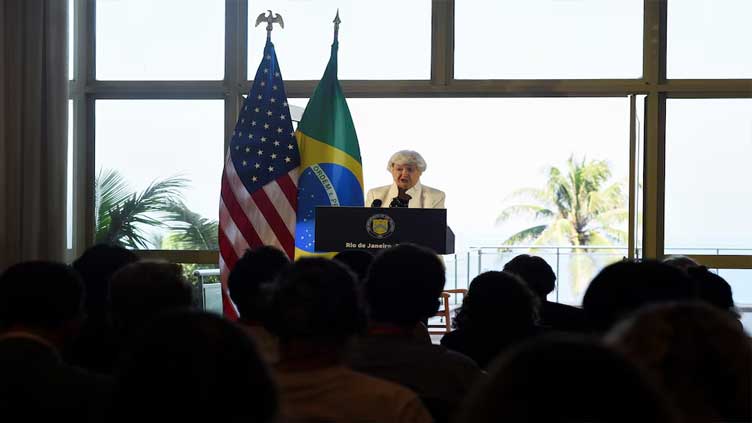G20 financial chiefs to flag global economic 'soft landing', warn of risks from war

World
G20 financial chiefs to flag global economic 'soft landing', warn of risks from war
RIO DE JANEIRO (Reuters) - G20 financial leaders will say on Friday there is a rising likelihood of a global economic "soft landing", but warn wars and escalating conflicts could endanger this outlook, according to the final draft of a joint communique seen by Reuters.
The statement is set for release as finance ministers and central bankers from the Group of 20 major economies wrap up their second day of meetings in Brazil, which has used its presidency to focus on reducing economic inequalities.
Last month, the World Bank forecast that the global economy would avoid a third consecutive decline in growth since a major post-pandemic jump in 2021, with 2024 growth stabilising at 2.6%, in line with 2023, but warned that overall output would remain well below pre-pandemic levels through 2026.
"We are encouraged by the increasing likelihood of a soft landing of the global economy, although multiple challenges remain," the draft, to be formally adopted later on Friday said.
"Downside risks include wars and escalating conflicts," the final draft said.
By avoiding explicit mention of the conflicts in Ukraine and Gaza, diplomats have worked to sidestep the disagreements between Russia and major Western nations that derailed a consensus at the finance chiefs' gathering in February.
RECOVERY UNEVEN
To defuse the disagreement, Brasil drafted a chair statement on geopolitical issues, stressing that these matters will be addressed by G20 leaders in November.
"Economic activity has proved to be more resilient than expected in many parts of the world, but the recovery has been highly uneven across countries, contributing to the risk of economic divergence," the final draft said.
The document flagged risks to the economic outlook that remain broadly balanced, with faster-than-expected disinflation and technological innovations, like the safe development of Artificial Intelligence (AI), cited among upside risks.
But at the same AI tech could also turn out to be a downside risk to growth, the document said, along with economic fragmentation and persistent inflation keeping interest rates higher for longer, extreme weather events, and excessive debt.
Climate change and significant loss of biodiversity were key topics of concern in the document, which warned that if poorer nations have to shoulder more of the cost of fighting climate change, it would only make global economic inequality worse.
"We reiterate the understanding that the cost of inaction is greater than the cost of action," the draft communique said.
The document also stepped up language calling for a reform of the International Monetary Fund, citing the "urgency and importance of realignment in quota shares to better reflect members' relative positions in the world economy."
A call to resist protectionism, although little changed from Brazil's chair summary in February, was broken out as a standalone paragraph in the draft communique.


